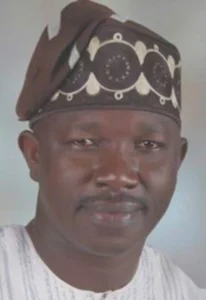
The annulment of June 12, 1993 Presidential election, adjudged to be the best in Nigerian history, was a Pandora’s box with numerous consequences and troubles. For Nigeria, it was an opportunity, a great opportunity missed for real growth and development of the most populous Black nation in the world. It is a general belief that if the election that saw Chief Moshood Kolawole Olawale Abiola, a Yoruba man from Abeokuta, flatly defeating his opponent, Alhaji Bashir Tofa, in his home state of Kano without any qualms, had been upheld, Nigeria would have been better developed socially, politically and economically. By now, it would have been in the league of the developed countries of the world. But, sadly, Nigeria is today worse off than our situation before the annulled election, 31 years after.
For the media, the annulment and its aftermath, particularly the seizure of power by the dark goggled President from 1993 to 1998, the late General Sani Abacha, was hell. The Nigerian Press almost totally lost its freedom. Media houses and journalists then had to practise their trade with fear and trepidation as no one was sure of what constituted a threat to the Abacha government.
Purposely to deal with the media and other perceived enemies of the regime, the government raised a special anti-people squad made up of the nastiest of men and officers from the military and security outfits. It is called the Strike Force and they terrorised the city of Abuja menacingly.
During the period, journalists were mauled, newspapers destroyed while many newspaper organisations closed down. In fact, the media suffered arbitrary detention, misuse of criminal charges and unfair trials, oppressive use of defamation proceedings, torture and ill treatment, suspected assassination attempts, arson attacks and outright banning of publications etc.
The Punch, The Guardian, Concord, Sketch, African Concord, The News, TSM, The Source, Daily Times and 26 other newspapers and magazines published by 12 media houses were proscribed or simply closed down. Many of them never recovered from the evil visited on them by the Abacha junta.
However, Vanguard Newspapers, owned by one of the best men on earth, Mr. Sam Amuka-Pemu, the great Uncle Sam, the newspaper I joined immediately after my youth corps service in September, 1988, escaped the malevolence of General Sani Abacha. Our ever refreshingly Vanguard was neither shut nor proscribed for one day; not because we were weak or cowardly, we were with many hot, brave columnists, Pini Jason, Dele Sobowale, Kola Animashaun, Obi Nwakama, etc. Like all other notable newspapers we were hot, audacious and always with the masses.
What really stood us out then was the profound leadership and exceptional professionalism provided by the great Uncle Sam. He reads the papers diligently and gives well thought out strategies and directions and this was what actually saved us from Abacha’s troubles.
A particular story or column that nearly got us into the Abacha trouble, when we were about to be proscribed and or shut down, was pragmatically managed by the trio of our publisher, Uncle Sam, our editor, the man of clarity in all areas, Mr. Frank Aigbogun, and my humble self as the Abuja Bureau Chief of the newspaper then.
Information got to our headquarters in Kirikiri Canal, Lagos that our editor would soon be picked up, detained, charged to court and our source of living, Vanguard, proscribed. Expectedly, the management was worried.
As their representative in the seat of power, both Uncle Sam and the editor called and briefed me about the impending calamity. Immediately, I made some checks and confirmed with additional information which I passed on to them and they became more terrified.
With my position, I officially related directly with both the editor and publisher unhindered. Uncle Sam wanted to come straight to Abuja for a possible solution but I told him to allow me handle it first, which I did successfully, to the glory of God.
With my rich contacts and an uncommon audacity, I approached the Chief Judge of the Federal Capital Territory, Abuja, and explained to him what Vanguard stands for, our style of operation and the fact that ours was more of development journalism. Now, seeing me like his child (I was barely 30 then) and a good and bold defender of his place of work, he confessed to me the plans by the government to get the paper proscribed like others. I thanked him profusely and left his office.
But I did not stop at that as I made straight to the media office of the Abuja judiciary where I narrated the outcome of my meeting with the CJ. Being my friends, I convinced them to issue a press release on Vanguard Newspapers that Vanguard was not just only friendly to the government of the day but that Vanguard has a history of contributing immensely to the social development of the country.
I accompanied the head of the press of the FCT Judiciary to the headquarters of the Nigeria Television Authority to submit the press release to either their DG or the Director News and it made the major headline of that day on Network News at 9. It was the first item beautifully delivered by the late ace broadcaster, Tokunbo Ajayi, that glorious night.
So, instead of Uncle Sam and our versatile editor, Frank Aigbogun, hearing about the order for the arrest of the editor, arraignment and proscription of Vanguard on the Network News, it was news of praise and commendation of the refreshingly different newspapers that came up. I was extolled by both Uncle Sam and the editor but Uncle Sam knew that in Abuja I could pull any string.
* Kehinde Olaosebikan retired from Vanguard Media Limited in 2003 and is now the CEO of Midas Communications Ltd, a global public relations firm

